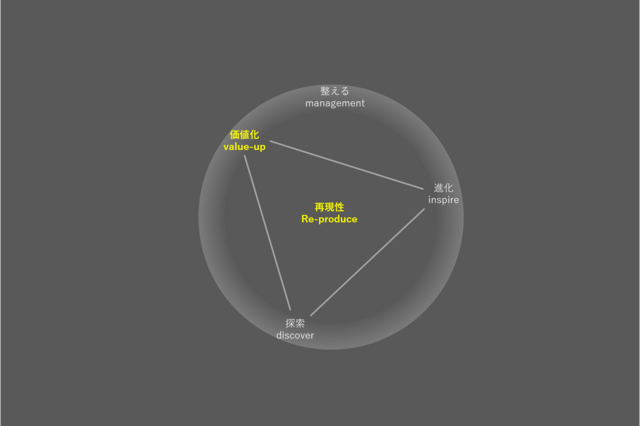スローライフ、ワークライフバランスなどライフスタイルを見直し、健全化しようとの社会的潮流がある。経営戦略を立案する上で、市場変化を読むことにも、従業員満足度(ES)の高い組織を作るにも見逃せないものである。どのような背景があるのだろうか?また、いかに対応すべきなのか?個(人)の視点から考察してみる。
海外の資料の中に興味深く且つ誰でも読めるほどわかりやすいものが幾つか見つかったので、自分流にアレンジしてみた。
題して「スピード化する世界」としてみた。
Hectic Pace Is Not Good
Western world is infatuated with speed and convenience.
In years gone by, life was simpler, and the pace of life was slower. People tended to live more in harmony with the cycles of nature?daytime was for work, and nighttime was for one’s family and for bed. Today, there are a number of reasons why people feel increasingly tired and fatigued.
Today, millions of people, especially in cities, find that life has become a dizzying, exhausting rush. This is particularly so in Japan, also in Western lands. At a recent meeting in the U.S., a speaker asked his audience to raise their hands if they felt tired much of the time. Instantly, a sea of hands went up.
Why are we so tired? Modern life is full of hitherto unheard of tensions?planes to be caught, deadlines to be met, children to be taken to and picked up from pre-school on time?the list is endless.” It is hardly surprising that tiredness has been described as the bane of our times.
●Sleep Less Lifestyle
One factor may be that people sleep less. And one of the more significant developments that made inroads into sleep time was the arrival of the electric light. With the flick of a switch, humans could control the length of the “day,” and people soon began staying up later. Indeed, many had little choice in the matter because factories began to operate around the clock and service industries extended their hours. One writer said: “The twenty-four-hour society was born.”
Other technological advances, such as radio, TV, and the personal computer, have also played a role in depriving people of needed sleep. In many lands, TV programs run 24 hours a day. It is not unusual for movie lovers or sports fans to turn up at work sleepy and tired after a long night’s viewing. Home computers, and the endless distractions that they offer, also entice millions to stay up late. Of course, these products in themselves are not at fault; nonetheless, they do provide some people an added incentive to brush aside the need for rest.
●Jet Speed Life
Not only have our days become longer but life itself seems to move faster?once again facilitated by technology. The horse-drawn carriage of less than a century ago is a far cry from today’s fast cars, bullet trains, and jet airplanes. In fact, a modern-day businessman, whose grandfather probably either walked to work or rode a horse or a bicycle, may fly across the Atlantic Ocean between meals!
The office has also hosted a quiet revolution in the interests of speed and productivity. Typewriters and conventional mail have given way to computers, fax machines, and E-mail. Notebook computers, cellular phones, and pagers have even blurred the distinction between home and office.
The Cost of Trying to Do Too Much
Of course, none of us can slow the world’s accelerating pace. However, on a personal basis, we can make adjustments that enable us to live a more calm, balanced life. let’s examine some of the effects that today’s frantic pace can have on us personally and on society as a whole.
●Effects of Hectic Pace
For example, washing machines save time in the laundry. Dishwashers do likewise in the kitchen. Millions of people do not even have to leave home to do their shopping and banking anymore?they simply turn on their computer and use the Internet.
Yes, the world, at least in part, is bursting with all kinds of time- and labor-saving devices. Hence, you would think that people would have an abundance of time to spend with their families and for relaxation. Yet, all too often, many say that they are more tired and stressed than ever before. The causes are many and complex.
Economic pressures are high on the list. The Australian Centre for Industrial Relations Research and Training analyzed the number of hours people spent at work in that country and found that “a hefty proportion are regularly working more than 49 hours a week” and that “these increases in working hours were likely to have an important adverse impact on family and community life.” Many workers choose to live in the greener, quieter outskirts of cities. That can mean spending hours each week?or even each day?commuting on crowded trains and buses or on congested roads. In effect, this adds to the length of the workday and to its tensions.
●Sleep Debt
Sleep problems have become so common in recent years that sleep clinics have opened up in many parts of the world. Researchers have found that when people regularly do not get sufficient sleep, they accumulate a sleep debt. Naturally, their body wants to pay this debt and encourages such by making them feel tired. But because of today’s sleep-deprived life-style, many people remain chronically tired.
In one Western land, sleep time has declined 20 percent over the past century, from an average of nine hours per night to seven. Researchers have amassed evidence that sleep debt causes learning and memory problems, motor-skill impairment, and a weakened immune system. Most of us have discovered for ourselves that a tired mind is also prone to make errors. Sadly, these errors can be both serious and costly.
●The High Cost of Fatigue
Fatigue resulting from long hours and staff cuts is said to have contributed to some of the worst disasters of the late 20th century. Among these are the nuclear disaster at Chernobyl, Ukraine; the explosion of the Challenger space shuttle; and the oil spill caused when the tanker Exxon Valdez struck a reef in Prince William Sound, Alaska.
The explosion at Chernobyl occurred during a special test at the power station. In his book The 24-Hour Society, Martin Moore-Ede says that the test “was being conducted under the supervision of an exhausted team of electrical engineers who had been at the plant for at least thirteen hours, and probably longer because of a ten-hour delay in obtaining permission to start.” Whatever the case, according to a recent study, one long-term effect of the radiation spill is a tenfold rise in thyroid cancers among Ukrainian children since 1986.
After a thorough investigation into the explosion of the Challenger space shuttle, a presidential commission report stated that the 20-hour overtime limit was exceeded 480 times by one group of contract workers and 2,512 times by another. The report added that fatigue on the managerial level, the result of “several days of irregular working hours and insufficient sleep,” was also a significant factor in the shuttle getting the ill-advised OK to launch. The report observed that “when overtime becomes excessive, worker efficiency decreases and the potential for human error rises.”
According to union officials, crew reductions, allegedly to reduce operating costs, meant that mariners on the Exxon Valdez had to work longer hours and perform extra duties. A report on the disaster explains that the third mate, who was in charge of the vessel when it ran aground just after midnight, had been up since early that morning. Nearly 11 million gallons of oil?the largest oil spill in U.S. history?caused horrific damage to beaches and wildlife and cost more than $2 billion to clean up.
●The Subtle Costs of Fatigue
According to one estimate, tiredness and fatigue cost the world at least $377 billion each year! But no amount of money can equal the cost in human life and health, which all too often are also affected. Take road accidents, for instance. According to a sleep-disorder clinic in Sydney, Australia, between 20 and 30 percent of road accidents in that country are due to drivers falling asleep at the wheel. It is estimated that in the United States, drowsiness contributes to at least 100,000 traffic accidents annually.
Yet, the consequences of fatigue may not end there. An accident victim who is rushed to a hospital for surgery hopes that his doctor is bright and alert. But because of a busy schedule and long hours, the doctor may be anything but bright and alert! A report by the Australian Institute of Health and Welfare revealed that some 10 percent of doctors were working in excess of 65 hours a week, 17 percent of all specialists exceeded those hours, and 5 percent of “junior doctors” worked more than 80 hours a week!
“Machines are protected by operation manuals, warning labels, and training courses,” says Martin Moore-Ede. “Humans arrive in this world with no such protection. . . . The shocking truth is that we know far less about the design specifications of the human being than we know about the hardware and software he or she operates.”
Our body does not have flashing red lights and alarms that tell us to stop or to slow down. Nevertheless, it does give us warning signals. These include chronic tiredness, mood changes, depression, and a tendency to become easily infected by prevalent viruses. If you have these symptoms?assuming, of course, that you have no underlying physical or other health problem?it may be time to reexamine your life-style.
●The Social Costs of Being Too Busy
The stressed, sleep-deprived life-style also takes a toll on human relationships. Consider the case of a newly married couple. They wanted what most newlyweds desire?a comfortable home and financial security. So both went to work full-time. But because of irregular shifts, they had little time together. Their relationship soon began to suffer. They ignored the symptoms, however, and persisted with their demanding schedules until their marriage, which had hardly begun, fell apart.
“Studies show that the divorce rate in shift working families is 60 percent higher than for day workers in regular jobs,” says the book The 24-Hour Society. Yet, whether they work shifts or not, many couples try to cram so much into their lives that, in effect, they squeeze the life out of their marriage. For others, stress and fatigue may contribute to a cycle of drug and alcohol abuse and poor eating habits?factors that not only exacerbate fatigue but may lead to many other problems, even child abuse.
To aid parents in coping with demanding schedules, child-care centers are increasing in number, with some even offering 24-hour service. For many children, though, TV is a de facto baby-sitter. Of course, if children are going to grow up to be responsible, emotionally well-adjusted adults, they need generous amounts of quality time with their parents. Hence, parents who are too tired for their children because of trying to maintain an unreasonably high standard of living are wise to count the cost?to their children and to themselves.
In today’s fast-moving technological society, the elderly are often victims as well. The speed of change and the constant flood of new gadgets onto the market make many feel confused, insecure, afraid, or even obsolete.
関連記事
2009.02.10
2015.01.26
株式会社インサイト・コンサルティング 常務取締役 COO(最高業務執行責任者)
個人と組織の成長を実現するために、真に効果的な人材育成のあり方を追求しています。国際競争力を併せ持つ能力開発を志ます。そのためには多様性を強みに昇華させることが肝要と心得ます。
 フォローして槇本 健吾の新着記事を受け取る
フォローして槇本 健吾の新着記事を受け取る
















